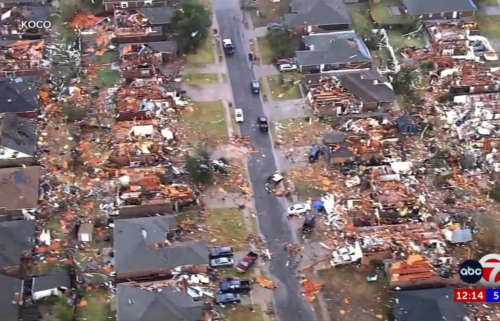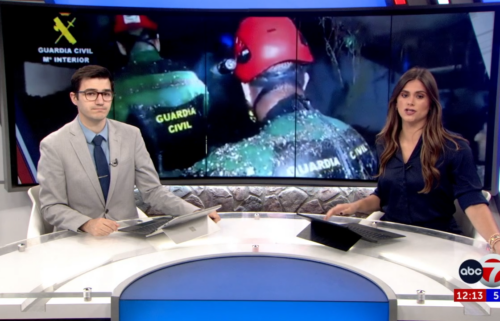Biden Administration’s Dept. of Labor proposes new worker heat protection rules
EL PASO, Texas (KVIA) -- New proposed rules released Tuesday by the Occupational Safety and Health Administration (OSHA) under the Department of Labor would require employers to come up with a work site heat injury and illness prevention plan for employees working in high-heat conditions. According to the draft rules set to be published in the Federal Register for a minimum of 60 days of public comment and review, various steps will have to be implemented for worksites at or above a 90°F heat index outdoors, or 80°F indoors, including:
Making at least 1 quart of "suitably cool" drinking water available per employee per hour, shaded or air-conditioned break areas, and minimum 15-minute paid rest break at least every two hours.
New employees would also have required one week "acclimatization protocols" limiting exposure to the heat once starting or returning to a job after more than two weeks off.
"Anytime that you live in a desert and an area that it's hot, if you work outside, if you work indoors, heat is always going to be a concern," said Dr. Ogechika Alozie, CEO and Medical Director of Sunset West Health. "The biggest things when you're talking about heat related injuries or, things that happen to people is heat exhaustion, heat stroke. Right. So initially you start over sweating, your pulse goes up. You start to feel hot. But when you get into the heat stroke part you're talking about, that's a medical emergency, right?"
Road construction is one type of work that could be affected if the draft rules go into effect. ABC-7 took the temperature of the interstate and access roads where work is ongoing on I-10 in west El Paso. An infrared thermometer measured the concrete at over 110 degrees Fahrenheit, and the asphalt at over 120 degrees, even with cloudy skies.
Dr. Alozie says that when temperatures get that hot, heat stroke becomes more likely and it's not a matter of just taking it easy while working.
"It's a medical emergency," Dr. Alozie said. "And so when you get to that point, you need to be in an emergency room. This isn't a 'let me sit down, let me have some water.' You need to be an emergency room. Probably with cooling blankets or some I.V. medications that can be given to drop (the body temperature)."
There are anticipated impacts on employers and businesses that would be required to implement these rules should they go into effect, including the potential for increased costs. Dr. Alozie says that medically, it would be worth it.
"When people are working outside, they should have work breaks, they should have water, they should have a cooling area," Dr. Alozie said. "I mean, that's just the sort of the standard of care. Now there's a different conversation about how much will that cost, how will affect the business community, and I defer that to business leaders. However, as a physician, that's what's best for the individual and humanity. And that's the idea."
A Texas law enacted in 2023 had removed a number of municipal ordinances in the state providing for mandatory water breaks. HB2127 was officially titled the "Texas Regulatory Consistency Act" but was also called the "Death Star Law" for it's expected potential impact on a swath of local ordinances, including in El Paso for equal pay and anti-discrimination policies.




